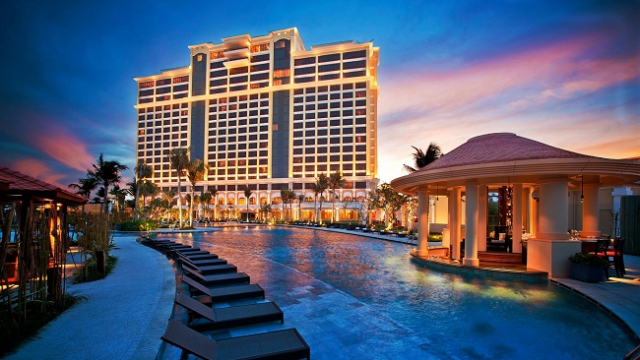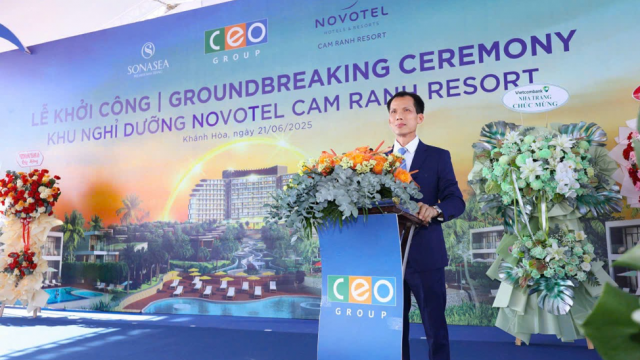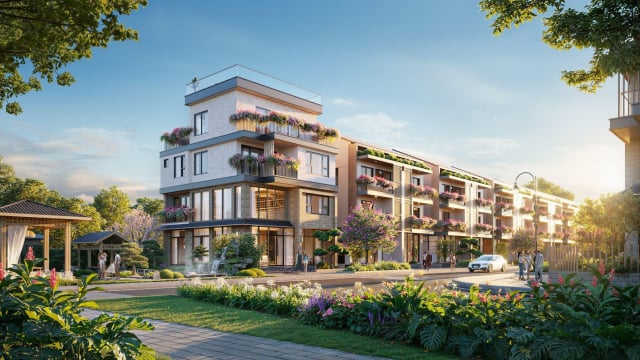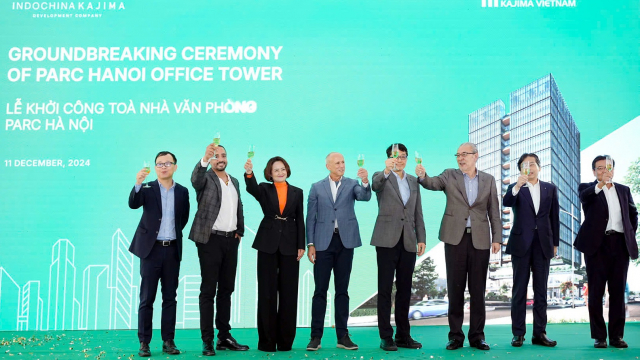Property
Ho Chi Minh City ranked first in real estate development prospect in 2020
PwC recommends all asset classes in the southern commercial hub be bought next year.
.jpg)
Ho Chi Minh City has been rising up in the real estate investment rankings for the past five years and it is now rated Asia Pacific’s top city for development and third for investment prospect, according to Emerging Trends in Real Estate report published recently by PwC.
Remarkably, it is also ranked as top in buy recommendation for all asset classes including office, retail, residential sector, industrial – distribution assets and hotel.
While investor sentiment towards local emerging markets is now on the wane due to global economic concerns, Ho Chi Minh City received consistently strong feedback in all areas.
While placing significant amounts of capital in Vietnam remains problematic given the relatively small size of local markets and a general shortage of investment-grade assets, it is receiving strong inflows of capital as a result of incremental shifts of manufacturing capacity away from China.
One result of this migration is that space in emerging-market logistics and business parks “has been selling like hot cakes”, as investors scramble to find a home for new factories.
Industrial real estate rents rose by double digits year-on-year in the first half of 2019 in several Vietnamese provinces, according to Savills research, including 54.6 per cent in Binh Duong and 31.1 per cent in Tay Ninh, northwest of Ho Chi Minh City.
The bright prospect of Ho Chi Minh City’s real estate sector thanks to the fact that Vietnam offers strong economic growth, a positive demographic profile and, perhaps most important, is seen as the biggest beneficiary of the slow migration of manufacturing capacity away from China.
Transparency remains a weak point, although it is improving, the report stated.
Nonetheless, the problem for real estate investors is that Ho Chi Minh City remains a market with relatively few investable assets and where risks are high. Indeed, a number of interviewees commented that too much capital was already being funneled into the wrong places.
In the region, Singapore, Tokyo, Sydney, and Melbourne, all liquid and transparent markets, are four of the top five cities ranked by investment prospects. All also appeared among the top five cities in PwC's 2019 report, when concerns about an approaching downturn were first aired.
The rest of the top 10 cities for investment are similarly large and liquid.
Having the brightest prospect, Singapore was one of the few markets regionally to see a surge in transactions in the first half of 2019, with most activity driven by cross-border capital.
The office sector has largely absorbed the oversupply, and with vacancies at an all-time low and limited supply in the pipeline, confidence in medium-term prospects has returned.
Hong Kong, meanwhile, has plunged to the bottom of both the investment and development rankings. Months of street protests in the city have been a huge drag on tourist arrivals, with serious knock-on consequences for local retail and hotel sectors.
Foreign investors seek to acquire operating hotel assets
Hai Phong industrial property powers up with new project from Indochina Kajima
The project Core5 Hai Phong from Indochina Kajima and Itochu Corporation will deliver approximately 80,000 square metres of world-class ready-built factory for lease, handover expected in the first quarter of 2027.
A decade of unprecedented apartment price surge
A decade of relentless apartment price growth has pushed the dream of homeownership further out of reach for Vietnam’s middle- and lower-income earners.
Essensia Parkway sells out within hours, marking an outstanding partnership with WorldHotels
Essensia Parkway makes significant impact in the high-end real estate market as 100 per cent of the limited collection was successfully registered within just a few hours at the launching event with the theme “Live lux-well, in a truly refined world”.
Essensia Parkway gains global prestige through WorldHotels - Phu Long collaboration
Essensia Parkway is set to mark a significant milestone as the first branded residences project in Ho Chi Minh City to be operated by WorldHotels – one of the finest portfolios of independent hotels and resorts within BWH Hotels.
Indochina Kajima breaks ground on Grade A office building in Hanoi’s emerging hub
Parc Hanoi marks Indochina Kajima's first office-for-lease project in its $1 billion investment plan in Vietnam.
























![[Hỏi đáp] Chi phí phần mềm hóa đơn điện tử, chữ ký số có được khấu trừ thuế không?](https://t.ex-cdn.com/theleader.vn/320w/files/news/2025/12/05/thue-ho-kinh-doanh-1514.jpg)
![[Hỏi đáp] Hộ kinh doanh kê khai thuế: Khi nào bắt buộc xuất 100% hóa đơn điện tử?](https://t.ex-cdn.com/theleader.vn/192w/files/news/2025/12/04/ho-kinh-doanh-1055.jpg)









![[Hỏi đáp] Bỏ thuế khoán có cần đổi thông tin đăng ký kinh doanh?](https://t.ex-cdn.com/theleader.vn/192w/files/news/2025/12/03/bo-thue-khoan-ho-kinh-doanh-2325.jpg)
![[Hỏi đáp] Tỷ lệ thuế GTGT và TNCN có đổi khi bỏ thuế khoán?](https://t.ex-cdn.com/theleader.vn/192w/files/news/2025/12/03/ke-khai-thue-ho-kinh-doanh-phi-mon-bai-1708.jpg)





